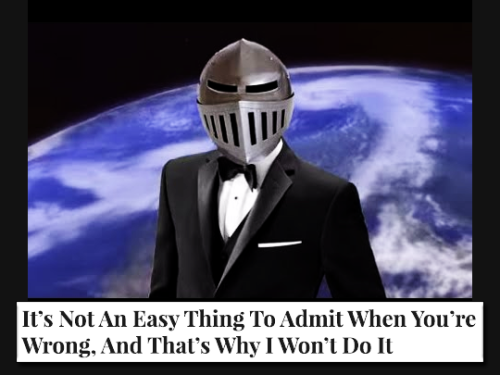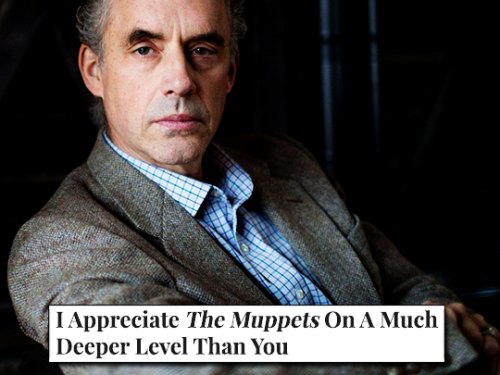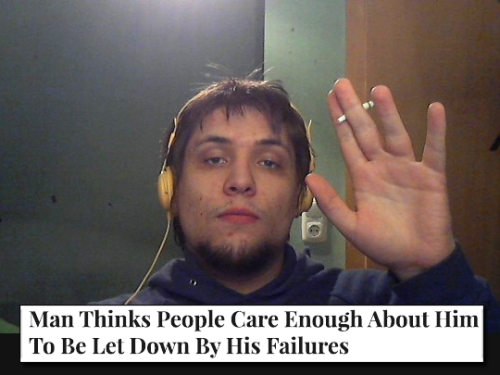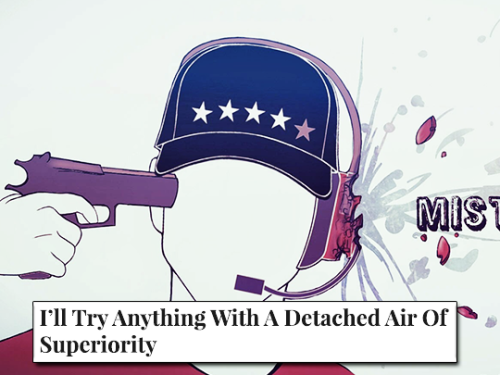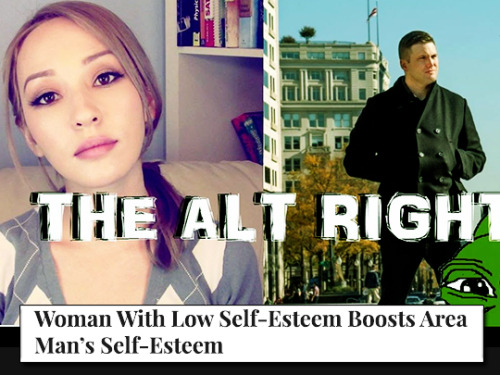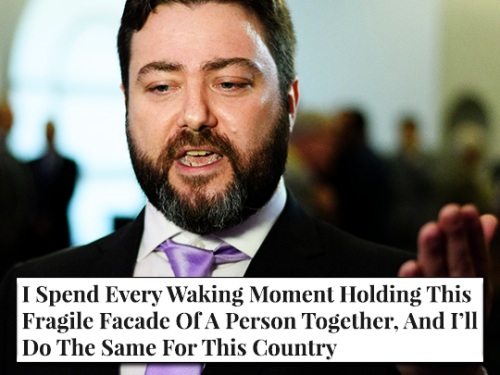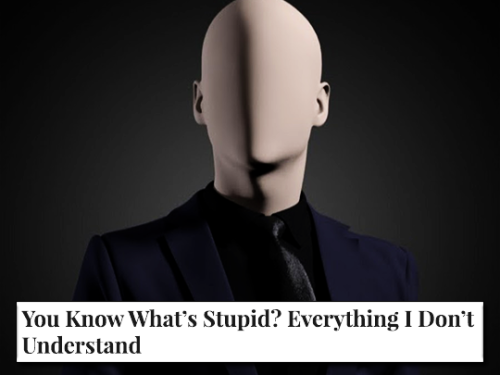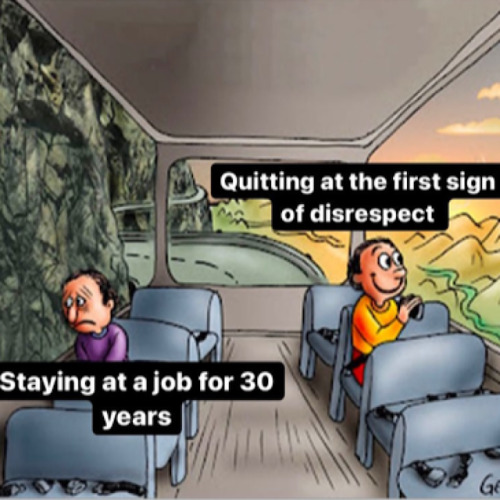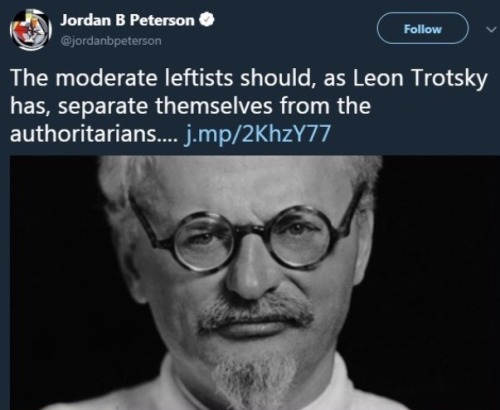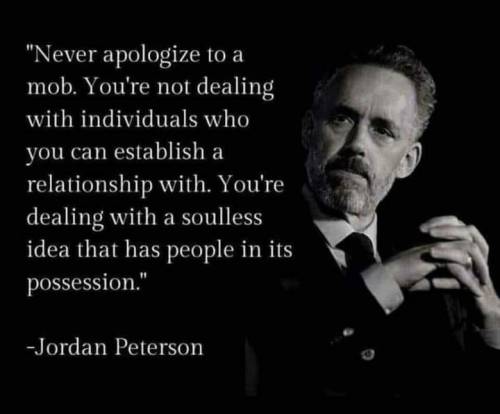#jordan peterson
A 60 second video of our children over the years. We have always given them space to do a dangerous things carefully. Voice over by Jordan Peterson.
How Do You Solve a Problem Like Jordan?
He’s not a problem for us at all, he’s a solution. He’s not got all the answers, but he’s at least a well educated humanist. This mob of inhuman, barely educated PomoHomo idiots who feel free to extemporise on EVERYTHING while know NOTHING about ANYTHING except a few excerpts and misquotes from Judith Butler and Michel Foucault. Of course because he is a cis white male to does not guzzle there non-sense postmodern kool-aid, they hate him. And the enemy of your enemy, at least for us, makes a friend!
From The Chronicle of Higher Education: “They’re waiting in the cold for Jordan Peterson, hands shoved in jacket pockets, serious books like The Gulag Archipelago and Modern Man in Search of a Soultucked under arms. The crowd outside the University of Toronto’s Isabel Bader Theatre on a Tuesday evening in November is mostly male and mostly in their 20s. They’ve spent hours watching Peterson on YouTube, where he rails against the enervating evils of postmodernism, dissects the Bible at length, and offers fatherly advice about how to “change the world properly.” They recite his dictums on personal responsibility, like “Clean your room,” “Sort yourself out,” and “Don’t do things that you hate.” They devour the classics he deems must-reads — Nietzsche, Dostoyevsky, Orwell. When asked to describe him, they reach for superlatives: brilliant, breathtaking, wise. When asked to compare him, they turn to historical figures: Plato, Diogenes, Gandhi. They insist he’s changed their lives.
Soon the man himself will arrive and deliver an often dazzling, sometimes puzzling, rarely dull two-hour lecture on the symbolic and psychological underpinnings of the book of Genesis. Afterward he will field knotty questions from the audience on whether originality is really possible, the tension between honor and happiness, and the evolutionary upside of solitude. These questions seem designed to be difficult, as if the audience were engaged in a giant game of Stump the Guru. It’s during such sessions that Peterson is at his improvisational best, sprinkling in ideas from philosophy, fiction, religion, neuroscience, and a disturbing dream his 5-year-old nephew had one time. It’s a hearty intellectual stew ladled up by an intense 55-year-old psychology professor who gives the impression that he’s on the cusp of unraveling the deep secrets of human behavior — and maybe the mystery of God, too, while he’s at it.
You’d never guess from the reverential atmosphere in the 500-seat theater just how polarizing Peterson has become over the past year. Days before, fliers were tacked up around his neighborhood warning the community about the dangerous scholar in their midst, accusing him of “campaigning against the human rights” of minorities and associating with the alt-right. There have been several calls for his ouster from the University of Toronto — where he’s tenured — including a recent open letter to the dean of the faculty of arts and science signed by hundreds, including many of his fellow professors. Friends refuse to comment on him lest they be associated with his image. Critics hesitate, too, for fear that his supporters will unleash their online wrath. A graduate student at another Canadian university was reprimanded for showing a short video clip of Peterson to a group of undergraduates. One of the professors taking her to task likened Peterson to Hitler.
He has more than a half-million YouTube subscribers, nearly 300,000 Twitter followers, and several thousand fan who send him some $60,000 per month.It can be tough to parse the Peterson phenomenon. For one thing, it seems as if there are multiple Petersons, each appealing to, or in some cases alienating, separate audiences. There is the pugnacious Peterson, a clench-jawed crusader against what he sees as an authoritarian movement masquerading as social-justice activism. That Peterson appears on TV, including on Fox & Friends, President Trump’s preferred morning show, arguing that the left is primarily responsible for increased polarization. That Peterson contends that ideologically corrupt humanities and social-science programs should be starved of students and replaced by something like a Great Books curriculum.
There’s also the avuncular Peterson, the one who dispenses self-help lessons aimed at aimless young people, and to that end has written a new book of encouragement and admonition, 12 Rules for Life: An Antidote to Chaos (Random House Canada). The book isn’t political, at least not overtly, and it grew out of his hobby of answering personal questions posted by strangers on the internet. That Peterson runs a website on “self-authoring” that promises to help those with a few spare hours and $14.95 discover their true selves.
Then there’s the actual Peterson, a guy who Ping-Pongs between exuberance and exhaustion, a grandfather who is loathed and loved by a public that, until very recently, had almost entirely ignored him. Now he has more than a half-million YouTube subscribers,nearly 300,000 Twitter followers, and several thousand die-hard disciples who send him money, to the tune of $60,000 per month. Even the man with all the answers appears stunned by the outpouring, and at the sudden, surreal turn in his life. “When I wake up in the morning, it takes about half an hour for my current reality to sink in,” he says. “I don’t know what to make of it.”
Figuring out what to make of Jordan Peterson’s rise requires first rewinding a few decades. Peterson grew up in the tiny town of Fairview, Alberta, where the high temperature stays well below freezing in the winter months and where the closest city, Edmonton, is a five-hour drive away. It’s a place where a teenage Peterson and his buddies drank too much, built bonfires, and cruised around the endless countryside.
Peterson attended the University of Alberta, earning degrees in psychology and political science before going on to get his doctorate in clinical psychology at McGill University. A fellow graduate student, Peter Finn, now a professor of psychology at the University of Indiana at Bloomington, remembers Peterson as quick-witted and confident. “He was an enjoyable person who liked to be different and thought highly of himself,” Finn says. “I thought, Who the hell is he?”
Peterson’s early research examined how alcoholism runs in families. When he wasn’t conducting studies on the genetic predisposition for addictive behavior, he was plugging away on a side project that would become his manifesto: Maps of Meaning: The Architecture of Belief. He worked on that manuscript, he says, three hours a day for 15 years, rewriting it scores of times. It was not the sort of book that a psychological researcher following the well-trod path to academic success would take on. It does not zero in on a phenomenon or stake out unclaimed ground in a subfield. Instead the book is a sweeping attempt at making sense of man’s inhumanity to man, the purpose of existence, and the significance of the divine. Peterson leaps from Wittgenstein to Northrop Frye to Grimm’s Fairy Tales, then on to Hannah Arendt, B.F. Skinner, and Dante. The book is shot through with theories of religion (“God” appears several hundred times in the text) and informed by Carl Jung’s archetypal view of the collective unconscious, an influence that’s still evident in Peterson’s work.
Maps of Meaning offers clues to the strongly held political stances that have turned Peterson into a controversial philosopher-pundit. In college, he writes, he espoused socialism almost by default. He tried to emulate the movement’s leaders, dutifully attending meetings, absorbing their slogans and repeating their arguments. Over time, though, he found that he didn’t respect his fellow activists, who struck him as perpetually aggrieved and suspiciously underemployed. “They had no career, frequently, and no family, no completed education — nothing but ideology,” he writes. He also discovered that he often didn’t believe the things he was enthusiastically spouting. “Despite my verbal facility, I was not real,” he writes. “I found this painful to admit.” He also became obsessed with the looming prospect of nuclear war between the Soviet Union and the United States. He fell into a depression, suffered “apocalyptic dreams” several nights a week, and fought against “vaguely suicidal thoughts.”
Carl Jung rode to the rescue. Peterson read a passage from one of Jung’s essays about the importance of understanding “these fantastic images that rise up so strange and threatening before the mind’s eye.” According to Jung, the way you understand them is by framing your personal struggles in terms of ancient stories, embracing the “power of myth,” as Joseph Campbell, another Jung disciple, put it. That epiphany made the bad dreams go away, and Peterson embarked on what has become a lifelong project of grappling with the strange and threatening images in his and other people’s minds.
He continued writing Maps of Meaning after he was hired as an assistant professor of psychology at Harvard University, using the book-in-progress (at one point titled “The Gods of War”) as a text for his classes. In 1995, Peterson was profiled in The Harvard Crimson, an article that reads like an award introduction. One undergraduate told the newspaper that Peterson was “teaching beyond the level of anyone else,” and that even “philosophy students go to him for advice.” A graduate student from back then, Shelley Carson, who now teaches at Harvard and writes about creativity, recalled that Peterson had “something akin to a cult following” in his Harvard days. “Taking a course from him was like taking psychedelic drugs without the drugs,” Carson says. “I remember students crying on the last day of class because they wouldn’t get to hear him anymore.”
Eventually, in 1999, Maps of Meaning was published — his magnum opus, the central preoccupation of his life to that point — and no one cared.
Or nearly no one. The chairman of the psychology department at Harvard at the time, Sheldon White, was impressed, calling it a “brilliant enlargement of our understanding of human motivation.” A few others chimed in with praise, but the response was mostly crickets. It sold fewer than 500 copies in hardcover. “I don’t think people had any idea what to make of the book, and I still think they don’t,” Peterson says. “No one has attempted to critique it seriously.”
It can be tough to parse the Peterson phenomenon. For one thing, it seems as if there are multiple Petersons, each appealing to, or in some cases alienating, separate audiences.He had considered using Maps of Meaning as the basis for his application for tenure at Harvard. When that moment came, though, he found he wasn’t emotionally up to the task. “My mood at the time wasn’t of sufficient stability to feel that I was in the position to make the strongest case for myself, unfortunately,” he says. He received an offer from the University of Toronto, and he took it. By then he was married with two small kids, and the prospect of steady academic employment was attractive. Peterson moved back to Canada.
In the years since then, he’s become a popular professor at the university. Typical comments on RateMyProfessors.com include “life-changing” and “he blew my mind” and “he is my spirit animal.” He ran a private clinical-psychology practice, consulted for law firms, and developed his self-authoring website, which is based on ideas from psychologists like James Pennebaker and Gary Latham on the benefits of goal-setting and the therapeutic value of writing about emotion. He also offered occasional commentary on public television in Ontario, sometimes while wearing a fedora.
He continued to research topics like religion, creativity, and the effect of personality on political orientation. But he is not widely known as an expert on any of those topics, nor is he considered the pioneer of a game-changing concept. He hasn’t frequently published in top journals. That may be, in part, because he is an old-fashioned generalist, more interested in understanding the connective tissue between seemingly disparate ideas than in tilling a small patch of disciplinary soil. Still, it seemed to some who knew him then that the promising professor who wowed them at Harvard in the 1990s had fallen off the map.
Inthe video that made Jordan Peterson famous, he can be seen sparring with a handful of transgender students about the use of pronouns. He is nattily attired in a white dress shirt with rolled-up sleeves and dark red suspenders. Several supporters, all of them male, stand behind Peterson, amplifying his points. A transgender student accuses Peterson of being their enemy for refusing to use gender-neutral pronouns. “I don’t believe using your pronouns will do you any good in the long run,” he says. “I believe it’s quite the contrary.” When another student asks what gives him the authority to determine which pronouns he uses when referring to someone else, Peterson spins to face that person.
“Why do I have the authority to determine what I say?” Peterson replies, his voice brimming with outrage, his fingers pressed to his own chest. “What kind of question is that?”
The video has three-million-plus views and more than 45,000 comments. It was filmed in October 2016 after a free-speech rally on the University of Toronto campus, an event that was prompted by a series of videos Peterson posted on YouTube titled “The Politically Incorrect Professor.” In the first video, he argues against a proposed law in Canada that would make so-called misgendering — that is, using pronouns other than the ones a person prefers — a potential human-rights violation, punishable with a fine (that specific statute, which later passed, does not apply to university employees like Peterson, though a similar provision, passed years earlier in Ontario, does). He also objects in those videos to mandatory bias training for staff members at the university. Peterson considers such laws anathema to free speech and makes the case, as a number of other psychologists have, that measures of implicit bias are based on shaky science.
The university’s student newspaper noticed the videos. That tipped off the rest of the news media, which prompted a pro-Peterson rally where Peterson attempted to speak while activists tried to drown him out with chanting and white noise. There was a second rally, followed by a debate between Peterson and two professors defending the proposed law and the use of gender-neutral pronouns. Transgender students protested that event using the hashtag #NotUpForDebate. On a Canadian news show called The Agenda, Nicholas Matte, a historian who teaches in the Sexual Diversity Studies program at the University of Toronto, accused Peterson of abuse, violence, and hate speech for his refusal to use gender-neutral pronouns. Peterson insisted that he would not waver in his opposition to the law, even if it meant going to jail. “I’m not using the words that other people require me to use, especially if they’re made up by radical left-wing ideologues,” he informed Matte and the television audience. “And that’s that.”
Peterson started appearing on podcasts and YouTube shows like The Rubin Report and Waking Up, hosted by Sam Harris, where the two wrangled fruitlessly over the definition of truth for two hours. Perhaps most important, Peterson appeared on a podcast hosted by Joe Rogan, a comedian and Ultimate Fighting Championship commentator, whose show is often among the top 10 most-downloaded on iTunes. Rogan spoke with Peterson for nearly three hours and declared him one of his favorite guests. He’s had him back twice since, and those podcasts have each been listened to by millions.
After the Rogan endorsement, Peterson’s online following swelled. He had been posting videos on YouTube for years, often of his classroom lectures, which had gained a modest following. But that audience expanded exponentially in the wake of the pronoun controversy. Last spring he started an account on Patreon, which allows users to donate money to support a person, often a musician, cartoonist, or other artist, though it’s become a fund-raising vehicle for activists, too. The first month he received $600, which was enough to help purchase better equipment to film his lectures. But the amount kept growing and, at last count, topped $60,000 per month (Peterson now keeps the amount he’s raising private). Those who give $50 or more get to ask questions in a monthly online Q&A session. Those who give $200 per month get a one-time personal Skype chat with Peterson for 45 minutes. The income from Patreon, along with the new demands on his time, caused him to put his clinical practice on hold indefinitely.
Other YouTubers edit and repackage his clips with titles like “Those 7 Times Jordan Peterson Went Beast Mode” and “Jordan Peterson to Student: You Can’t Force Me to Respect You.” There is an active forum on Reddit devoted to
There is another forum devoted solely to
of which there are many. There is Peterson-inspired fan art, including a painting of him arguing with transgender students and an old-fashioned medicine label for “Dr. Peterson’s Sort Yourself Out Syrup,” which purports to cure, among other ailments, “identity politics” and “bloody postmodernism.”
Some of what Peterson says isn’t discernibly different from the messages of conservative firebrands like Ben Shapiro or the liberal-baiting troublemaker Milo Yiannopoulos, both former Breitbart pundits. Like Shapiro, Peterson argues that the left is transforming the next generation into victims and whiners. Like Yiannopoulos, Peterson argues that the patriarchy is a boogeyman. But when he’s been lumped in with what’s come to be called the alt-right, as happens fairly regularly, Peterson has pushed back, calling it “seriously wrong.” The erstwhile socialist considers himself a classic British liberal, and he has castigated the far right for engaging in the “pathology of racial pride.”
Peterson’s route to notoriety mirrors that of other professors like Nicholas Christakis and Bret Weinstein. In the fall of 2015, Christakis, a sociologist at Yale University, was encircled by students upset about an email his wife had sent questioning the need for Halloween-costume guidelines. Last spring Weinstein, then a biologist at Evergreen State College (he has since resigned), confronted a group of students furious that he had objected to a planned Day of Absence in which white professors and students were encouraged to leave campus. In both cases, those clashes were captured on video and widely shared online. In both cases, the professors were largely lauded as voices of reason, while the students were mostly mocked as overly sensitive and out of control.
Peterson has used his unexpected notoriety to express dissatisfaction with the state of the university in Canada and the United States. He believes that the humanities and the social sciences in particular have become corrupted — a term he employs with relish — by left-wing ideology, and that they are failing to adequately educate students. He lays much of the blame at the feet of the late Jacques Derrida and his disciples for replacing, as he sees it, a search for truth and meaning with grousing about identity and power structures.
His critique is broadly consistent with that of Jonathan Haidt, the New York University psychology professor and founder of Heterodox Academy, an organization whose goal is to increase ideological diversity at universities. Peterson and Haidt met in 1994, when Haidt interviewed for a position at Harvard and Peterson was an assistant professor there. Haidt remembers Peterson as “one of the most memorable professors” he spoke with that day. They didn’t keep in touch, but they met again recently when Haidt appeared on Peterson’s podcast. “Socrates would be aghast at how few of us are willing to stand up for academic freedom if it risks arousing an angry mob,” Haidt wrote via email. “Jordan Peterson is one of the few fearless professors.”
He also has a booster in Camille Paglia. Paglia, a professor of humanities and media at the University of the Arts, and a prominent cultural critic whose views don’t fit neatly in political categories, identifies as transgender, though she has also been skeptical of what she calls the current “transgender wave.” Like Peterson, Paglia condemns postmodernism as a malevolent movement. While she hadn’t heard of him until recently, Paglia regards Peterson as a long-lost scholarly brother and sees a link between Maps of Meaning and the provocative 1990 book that made her reputation, Sexual Personae. “It is truly stunning to me how Prof. Peterson pursued his own totally independent path of scholarship in another discipline and yet how our intellectual paths would eventually converge!” she wrote in an email. Paglia blurbed Peterson’s new book, calling him the most important Canadian intellectual since Marshall McLuhan.
After Peterson’s Biblical lectures, devotees like to meet at a bar called Hemingway’s, an appropriately named venue given his emphasis on the value of masculinity. (Peterson argues for the societal importance of the “masculine spirit” and contends that feminists unjustly stigmatize qualities like competitiveness.) My unscientific sampling of the crowd found that the men over 30 saw Peterson as standing up against a tide of anti-male bias. One mentioned that he became interested in Peterson after hearing him speak with James Damore, the former Google software engineer who wrote a memo complaining about the company’s “ideological echo chamber” and asserting that biological differences between men and women explain, at least in part, the gender gap in the tech industry. Peterson seems to be making a passionate case for what they already felt. A software engineer told me he respected Peterson because he “drew a line in the sand.”
The men in their 20s more often mentioned Peterson’s call to personal responsibility and self-improvement, what Peterson has called the “metaphysical fortification” of the individual. “I watched one of his videos and I realized he wasn’t full of shit,” a graduate student in early-childhood development said. A religious-studies student, who is also a practicing Sikh and wears a turban, confessed that he and his girlfriend broke up over his support for Peterson. A Bitcoin entrepreneur named Tom who was wearing a T-shirt covered with images of Donald Trump’s face (he said he liked the shirt because it “triggered SJWs” — that is, social-justice warriors) told me, “In my opinion, he’s our generation’s philosopher.”
There were female fans, too, though they were clearly outnumbered. One recent Toronto journalism graduate whispered that she had a crush on Peterson. Another woman, Kristen, didn’t want her last name printed because she’s already suffered blowback from online friends over her fondness for him. “I think people misconstrue what he’s about,” she says. His overall message, according to Kristen, is “pick yourself up, bucko” — quoting one of Peterson’s taglines.
Each morning, ‘it takes about half an hour for my current reality to sink in.'His influence, though, runs deeper than cross-stitch-ready phrases. Gad Saad sees Peterson’s appeal in religious terms. Saad, a professor of marketing at Concordia University, has likewise sparked the ire of some on the left with his critiques of feminism and Islam. “Jordan has an apostolic flair,” Saad says. “He represents the irreverent academic who isn’t willing to toe the line, who stands on principle. Most academics are too tepid in trying to tackle these issues.” A former student of Peterson’s at Harvard, Gregg Hurwitz, now a writer of best-selling thrillers, has long drawn inspiration from him. Hurwitz slipped some of Peterson’s self-help quotes into his novel Orphan X, which is slated to become a movie starring Bradley Cooper. Hurwitz thinks Peterson’s knack for extracting life lessons from lofty concepts helps account for his appeal. “It’s this ability to take the evolutionary, archetypal narrative and apply it to cleaning up your room,” he says. “And he’s actually authentic.” Hurwitz remembers how, at Harvard, Peterson was quick to shut down students who used “facile ideological arguments” from either end of the political spectrum. “He would dispatch them readily and was unafraid to do so,” Hurwitz says.
There are plenty of others who see Peterson as a malignant force and argue that he provides intellectual-sounding cover for bigotry and misogyny. But persuading them to state those views on the record is a challenge. One cited “personal and community safety threats” as a reason for not commenting. Another asked that even her refusal to comment be kept off the record. They worry about their names’ merely appearing alongside his — and perhaps with some reason. David Cameron, dean of the faculty of arts and science at Toronto, said he was inundated with hostile emails after he sent two letters to Peterson warning him that failure to use a student’s preferred pronoun “can constitute discrimination” under Ontario law, and also reminding him to engage in “civil, nonviolent interactions at all times.” (Peterson made both letters public and called them “inexcusable.”)
Even friends and former co-authors turned down requests for interviews or simply didn’t respond. A former student and admirer, who asked to speak on background, has mixed feelings about the version of Peterson now on display. “His core psychological ideas really are that good,” he writes in an email. “However, I’m afraid that the more time he spends publicly revealing his ignorance of the history of race- and gender-relations, the less eager I am to be on record saying anything good about him.”
What you can’t help noticing when you walk into Jordan Peterson’s unassuming row house in central Toronto are the paintings. There is Soviet propaganda everywhere, including on the ceiling. He has more than 200 such paintings: Lenin addressing a crowd, a portrait of a Soviet agronomist, Russian soldiers during World War II. In the early 2000s, Peterson began buying these paintings on eBay because the irony of bidding for communist agitprop on the most capitalist marketplace ever devised was too delicious to resist. But he also bought them to remind himself of how glorious utopian visions often descend into unspeakable horror.
To understand Peterson’s worldview, you have to see the connection between his opposition to gender-neutral pronouns and his obsession with the Soviet Union. He believes that the insistence on the use of gender-neutral pronouns is rooted in postmodernism, which he sees as thinly disguised Marxism. The imposition of Marxism led to the state-sponsored slaughter of millions. For Peterson, then, the mandated use of gender-neutral pronouns isn’t just a case of political correctness run amok. It’s much more serious than that. When he refers to the “murderous ideology” of postmodernism, he means it literally.
In person, Peterson is wiry, hyperalert, ready to pounce. His dark hair is graying and closely cropped on the sides. He’s lost the beard he sported in years past, along with a lot of weight — 50 pounds, he says, since he changed his diet and stopped taking antidepressants. When you watch old videos of Peterson’s lectures, you’ll hear the same ideas, often the same anecdotes, but the professor delivering them is a more measured, genial figure. These days Peterson seems like a man possessed. His brow furrows, his eyes narrow. He speaks in rapid-fire, um-less sentences. He doesn’t smile much. Sometimes Peterson seizes his temples with one hand as if squeezing out an especially stubborn thought.
His lectures are largely improvised. He writes out a bare-bones outline, but he’s never sure exactly what he’ll say or how long he’ll talk (90 minutes? Two hours? More?). His audience likes the no-frills urgency, the sense that he’s digging to the heart of impossibly complex conundrums, the feeling that they’re observing a bona fide philosopher sweat out the truth under pressure. His frenetic, freewheeling approach is the antithesis of a rehearsed TED talk. He describes his method as a high-wire act. “It’s always a tossup as to whether I’m going to pull off the lecture, because I’m still wrestling with the material. Because the lecture in the theater is a performance — it’s a theater, for God’s sake,” he says. “What I’m trying to do is to embody the process of thinking deeply on stage.” He pauses for a moment, then amends that last statement: “It’s not that I’m trying to do that. That’s what I’m doing.”
Not long ago, Peterson had his picture taken with a couple of fans who were holding a Pepe banner. One of them was also forming the “OK” sign with his fingers, probably a reference to the “It’s OK to Be White” meme created on 4Chan, one of the more offensive and irreverent corners of the internet. Pepe is a smirking cartoon frog that was originally conceived as an innocent illustration but has been appropriated as a tongue-in-cheek icon by aggressively pro-Trump types.
RELATED CONTENT
- She Showed a Video in Class. Now She’s a Hero to Some, a Pariah to Others.
- The Gadfly PREMIUM
- A Radical College’s Public Meltdown PREMIUM
Peterson thinks pointing to that photo as evidence of his sympathy for white supremacy is silly. “I’ve had my picture taken with twenty-five hundred people in the last year, maybe more,” he says. Peterson, who has written a lot about religious iconography, finds the mythos around Pepe fascinating, noting how Pepe is worshiped by the fictional cult of Kek in the made-up country of Kekistan. “It’s satire,” he says. “A lot of these things are weird jokes.” They’re poking fun, he contends, at the oversensitivity of those who would condemn images of frogs or benign statements about the OK-ness of white people. And Peterson has put his own spin on the joke: In a recent video, he held up a Kermit the Frog puppet with a Hitler mustache as a way of acknowledging the criticism, and also, perhaps, of showing his younger followers he’s down with the latest memes.
Asked whether he worries that his association with these symbols and slogans, which have been employed by a number of avowed white supremacists, could be misunderstood, Peterson waves off the concern. “I know for a fact that I’ve moved far more people into the center,” he says. “People write and say, ‘Look I’ve been really attracted by these far-right ideas, and your lectures helped me figure out why that was a bad idea.’ That also happens with people on the far left.”
He’s also heard the criticism, including from some longtime colleagues, that he fails to couch his language carefully and as a result naïvely wades into fraught conversations about gender and race. “They say, ‘I kind of agree with Jordan, but he could have been a lot nicer about it,’” he says. “It’s an attitude that brought out a rather cynical reaction in me: ‘Oh, yeah, you could have done what I did, but you would have done it better?’ It’s like, go ahead, man! Have at it!”
Peterson did recently back down after proposing a website that would use an algorithm to determine which university course descriptions contained postmodern and Marxist language. His plan, which he announced on a television news show, was to create a list of those courses so that students could avoid them. He reiterated his claim that the humanities and the social sciences have become ruined by postmodernism, and he hoped that this list would help bring down those departments. He saw this as a first step toward starting his own online university founded with the mission of developing character, though the plans for such a grand enterprise remain sketchy. The reaction to his website proposal was not positive. Peterson, after talking with a number of friends who told him that it was a bad idea, decided to scrap the website, at least for now. “The question was, ‘Would it do more harm than good?’ ” he says. “I thought it might add to the polarization.”
On the table in his den is a copy of his new book, 12 Rules for Life. It is, in a sense, a more accessible version of Maps of Meaning. In it you won’t find flowcharts featuring dragons or the full text of a letter he wrote to his father in 1986. Instead it’s an anecdote-driven advice book that encourages readers to “treat yourself like someone you are responsible for helping” and “pursue what is meaningful (not what is expedient).” It would be hard to ferret out anything to protest in these pages. The preorders of 12 Rules already dwarf the total sales to date of Maps of Meaning.
Peterson seems more than a little overwhelmed by what’s happened to him over the past year. He estimates that he’s received 25,000 emails in recent months from fans who want to express what he means to them. At the same time, health problems that have long plagued him, including bouts of debilitating fatigue, have resurfaced. Plus there’s the ever-present anxiety: He is speaking so often now, and what he says is so closely scrutinized by supporters and detractors alike, that he fears one inartfully phrased remark could be used to pull him down from his new perch. “Surfing is the right metaphor,” he says. “It’s like I’m on a very large wave, and that’s, you know, really something, but mostly you drown.”
Tom Bartlett is a senior writer at The Chronicle.
A Myth for Mothers
The witch in her condo, devouring mother,
croons at her cauldron like a fouling mother.Saraswati sings the spheres to their order,
gifts cradled in four arms. O flowering mother!
Brouhaha suitors clamor for her hand,
which unplucks the threads of her dowry, poor mother.Men are often encountered in pieces. So Isis
reknit her husband’s bones. A towering mother.You want to conquer? Try conquering the rain
and punish what feeds you, your showering mother.Who gave me everything I have?
You bet your ass, my empowering mother.-e.c.c
YouTube Skeptic Community and Anti-SJWs + The Onionheadlines
[ Armored Skeptic, Aydin Paladin, Jordan Peterson, Kraut and Tea, Laci Green, Mr. Metokur, Roaming Millennial, Sargon of Akkad, Tonkasaw ]
Post link
The more I read and learn about this man, the more impressed I am. I don’t agree with Jordan Peterson about everything, but I respect the man for standing up for his own, and ours for that matter, basic rights such as freedom of expression. Mandated speech is censorship, period. We need to have the right to offend if we want to search for truth, and to take away the right to offend limits our ability to seek and find our own truths. That is censorship, and why I agree with the stand Dr. Peterson is taking.
PJ
Post link
highly recommended interview with jp. enjoy.
Why Jordan Peterson Is Always Wrong
from above link quick quotes:
“According to Peterson, universities are full of ungrateful radicals, determined to undermine the intellectual and spiritual foundations of Western civilization, insistent on advancing a dangerous totalitarian agenda that pushes for “equality of outcome” in every sphere of life.”
* * *
Take Bill C-16, which amended Canada’s Human Rights Law in 2017 to include gender identity and first rocketed Peterson to fame. The primary purpose of the act was to protect trans people from discrimination in areas such as housing. The word “pronoun” doesn’t appear anywhere in the text (…) Nevertheless, Peterson was utterly convinced that C-16 was a totalitarian “compelled speech” bill and made a name for himself outside of Canada for his strident denunciations. C-16 has been on the books for a few years now, and no one has been charged with a Pronoun Crime.
* * *
The only real link between Marxism and the wide array of social movements and schools of thought that Peterson associates with “postmodern neo-Marxism” is that they all feature complaints about the existence of various forms of oppression. The idea seems to be that since Marxists think workers are oppressed due to their economic position and feminists think that women are oppressed due to their position in a gender hierarchy, the latter is a “version” of the former.
* * *
A third, deeper problem with Peterson’s analysis is that despite his objection to “equality of outcome,” he continues to believe in “equality of opportunity.”Yet in a society where wealth can be inherited, this distinction is untenable. One generation’s outcomes necessarily shape the next generation’s opportunities. Having rich parents or poor parents is the difference between having an array of choices and a narrow menu of options.
* * *
Peterson famously asks us to consider the lobster, our genetic relative, and the way it competes to form dominant hierarchies at the bottom of the ocean floor. The bigger lobsters push around the smaller lobsters — why should things be any different in the human world?
It’s winner-take-all in the lobster world, just as it is in human societies, where the top 1 per cent have as much loot as the bottom 50 percent — and where the richest eighty-five people have as much as the bottom three and a half billion.
no one on the Left wants to eliminate all forms of hierarchy. The question has always been how many and what kind of hierarchies might be justified, not whether hierarchy should be permitted at all.
* * *
“Don’t blame capitalism, the radical left, or the iniquity of your enemies. Don’t reorganize the state until you have ordered your own experience. Have some humility. If you cannot bring peace to your household, how dare you try to rule a city? Let your own soul guide you.”
while no one denies that personal problems very often have nonpolitical dimensions, they sometimes have transparently political dimensions, too. Insisting that people exclusively focus on the dimensions of their problems that social progress can’t solve is as foolish as saying that no one should go to the doctor because not all human suffering is caused by curable diseases.
* * *
Throughout Peterson’s books, he frequently describes modernity as a period where the meaning provided by faith has eroded under the assaults of overambitious scientific reason and corrosive postmodern philosophy. The result has been either a cynical withdrawal from the world or a totalitarian impulse to bring meaning back through force.
Peterson avoids asking whether capitalism bears any responsibility for the crisis of meaning he and others have diagnosed.
Peterson’s unwillingness to look at the transformative effect of capitalism while complaining about the decline of sacred meaning might explain why he puts so much stock in attacking relatively obscure French philosophers. By implying that it is an “ungrateful” set of intellectual sophists who are responsible for the current conditions, Peterson can avoid looking very deeply into the tension between his support for traditionalism and his role as a cheerleader for global capital. Far easier to point the finger at Derrida and Foucault than to ask whether an ideology built on the axiom “everything has its price” might have something to do with declining faith in eternal values.
* * *
here is one thing “I” will add: capitalism is failed as much as communism. at least, on an ethical level:
it was capitalism that invented slavery. it was capitalism that created global warming. it was capitalism that invented all sorts of different and “creative” porn genres that involves even children. no way that’s happening in communism.
it WAS and it STILL IS capitalism that wants to sell weapons, that start wars, that exploit other countries. capitalism goes way too fast, x is cool today and x is shit tomorrow. capitalism needs a lot of resources. moar resources! cut more trees! release more shitty gasses to the atmosphere! but also hey, you got resources? YOU GIVE ME YOUR RESOURCES NOW! you don’t have power to stand against biggest capitalistic force, so you get rekt. just like a little shitty lobster.
who is the biggest capitalist? united states. ruled by whom? corporations. clearly, all politicians funded by those corporations or the very capitalist himself like trump becomes the politician. you can vote for x and lose or you can vote for y and lose. yah! great system. but in the mean time don’t stop fighting amongst each other and calling each other names cause that really matters.
once your capitalism as strong as united states’ your corporations will be as strong as theirs too and there will be no way to stop them from ruling the country anymore and starting wars in other parts of the world and politicians will just become their puppets.
my heroic feminist opinion is that jordan peterson is a fag for crying and having an eating disorder. uh no you see I’m pointing out his hypocrisy. or something. did you hear he bitched out and went to rehab also

Who else -should be/deserves to be- put into Zizek’s Gulag?
Vote now!
Comments sections at very intellectual-content blogs like Astral Codex Ten don’t tend to get all that intimate and personal, but every now and then you get an exchange like one I ran across under “Advice For Unwoke Academic?”, which I feel should be kept somewhere in full for posterity, so I’m posting it below the cut. (Warning: very long, but it gets more interesting towards the end!) I find it very interesting how it reveals the type of journey that leads someone (whose gender isn’t specified I don’t think but I’d be willing to bet thousands that he’s a guy) to alt-right intellectual figures like Curtis Yarvin. (I imagine something like this is happening on a grander scale with somewhat more mainstream public intellectuals like Jordan Peterson.)
Essex [this comment is in response to a different commenter than the one I’m going to show below]:
“It’s an actual war”
No, it isn’t. You are using hyperbolic language. I’ve personally seen the remains of “actual war”. It makes student protests, or even riots, look like a frolic in a field.
If you want this to be an ACTUAL war, though, please go ahead and keep deciding that every person you’re ideologically opposed to is a mindless psychopath who must be crushed and cast out of society just like they do. Keep your foot flat on the pedal, they’ll surely swerve first.
I think both sides here consist of small cores of people who are terminally ideological to the point of hating life and loving death and a bunch of people who have been tricked into listening to those people. Those are the ACTUAL sides here: normal people and those who hate life and love death, whether that takes the form of Terminal Woke or Terminal Anti-Woke. The latter win when they get the former to kill each other, and the former win when they ignore the latter, because the latter are actually very small and weak and can only cause damage beyond a tantrum with a gun when they convince other people that loving death and hating life is Just and Noble or Stunning and Brave or Based and Redpilled or whatever other banner those ghouls will eventually hoist next.
In summary- I hope every person on both sides who sees this as a total war and a whole half of the country as their irreconcilable enemies chokes on their own frothing spittle and spares the rest of us the mass deaths they crave. A pox on both your houses. Consider me the general of the Army of People With Actual Problems In Their Lives declaring war on both of your camps.
mrpatapon:
Centrists are those people that fell off the progressive band wagon because they didn’t survive the purity spiral, but aren’t ready to become full-on reactionaries/dissidents.
Are you an Army Vetran or someone who has been in an active warzone? Since you said that you’ve seen the aftermath of an actual war.
Also what is the end goal of Centrism in the so called Culture Wars? Is it to wait for it to end and join whichever sides ein? Or is it a return to a time when politics isn’t exisential and people could trust each other once again?
Essex:
1. Yes, in fact I’m not yet interested in stripping people of their rights. No, I’m not interested in hearing your very clever and novel argument about how rights are a spook or decadent or dysgenic or were invented by wealthy bankers or whatever other thing you want to blame for them.
2. Not an army veteran- I’ve done humanitarian work in Somalia.
3. The second. I’m certain now that you’ll say that I’m helplessly naive and a traitor and that I need to pick one group of psychotic death-worshippers or another and that being in the middle makes me a traitor- so be it. I will accept any consequence from this, up to and including death, in the name of human decency.
mrpatapon:
I wouldn’t exactly call you a traitor or a bad person for being a fence sitter. Instead I would say that you like most of the population are politically apathetic and have no real vision beyond upholding whatever the status quo is. If that status quo were to ever change then there’s a high probability that most people will follow suit.
Most people see their Rights as some magical unalienable thing that can never be taken away. I feel that the past few months have shown how untrue that notion is.
Also why do you keep describing us extremist as a psychotic death cult? I’d say that most of us in real life are actually pretty chill people with strange ideas.
Essex:
I am not “politically apathetic”. I recognize that politics consists of more than shrieking harpies screaming at each other over rainbow colors on sneakers when people are starving to death. Famine, disease, and want in all of its forms are the enemy of any right-thinking person, and the fact that so much of both parties blatantly don’t care about this in favor of playing silly fucking death-cult games which will lead to vastly more suffering is why I have such contempt for said games.
Yes, of course rights CAN be taken away- that’s a tedious and banal argument against rights. If you want to be a moral nihilist, though, then you’ve eliminated any arguments besides “Which one of us can crush the other into the dirt first”, which isn’t the thought of “a pretty chill person with strange ideas”- it’s the thought of someone who should have reincarnated as a lower animal instead.
I’m certain you’re as sweet and charming as can be in person- antifreeze is very sweet when you drink it, and the members of Heaven’s Gate were all kind people who couldn’t hurt a fly. I know an incredibly gentle man who admitted to trying to discourage people from taking basic medical precautions because he thought it might accelerate COVID-19 into mutating into a form that would kill 99%+ of the human population. I suspect that he also tried to deliberately spread it when he became infected himself. Being nice and decent doesn’t prevent you from being evil in other ways.
If you want me to be more specific, I think ideologies that, in the longform, present themselves as the One True Answer to All Political Problems, and which generally revolve around the idea that a “THEM” is responsible for all woes, and if “THEY” were destroyed (either completely, or simply in the form of having all power and effective rights taken from them) and all power was handed over to those who hold to the ideology, the eschaton would be immanentized. If you believe some banal argument about monarchy being more proof against corruption due to the monarch’s state being his property and therefore the monarch would care for it, or the monarch fearing rebellion and thus making sure that the state functions well for its people, or that black people do, really and truly, have genetic propensities towards lower IQ and socially-aggressive behavior, I’d debate you on that, but I wouldn’t call you a death cultist- naive or a prick, but not a death cultist. Once you start talking about Kings in a way that suggests you secretly believe their touch cures the pox or advocating that because of this black people should simply be screened out of any position beyond janitor and put in bantustans, then you’re a death cultist.
Pitch me your “strange ideas”, and I’ll tell you whether or not I think you’re in a death cult.
mrpatapon:
Eh it seems you’re a bit too upset at the moment to be receptive to any new ideas, so maybe we should talk some other time.
That said, I would like you to guess what my political beliefs are, that way I can know what I sound like whenever I’m in the mood to sperg out like this again.
Did I come off as sounding like a Neo-Nazi Nihilist? If so then I apologize for the misunderstanding.
Also I think that it’s wonderful that you did actual humanitarian work in Somalia. There are those who are practice what Charles Dicken calls “Telescopic Philanthrophy”, people who style themselves as philanthropist to serve their own vanity while ignoring less prestigious problems at home. You however seem like someone who genuinely cares about the people they are helping, judging from your response.
If you want to help people even more, then you should take a closer inspection on the regime and its institutions that turned Somalia what it is today.
Have a good day/evening.
Essex:
1. If you don’t want to share your ideas, you don’t want to share your ideas. I am currently my normal level of furious about the many injustices in the world and the people who either cause them or excuse themselves from caring about them, which is much more than most people but less than a Wisdom King. I simply don’t bring it up most of the time. I won’t apologize for it, but I will make it clear that I feel no animosity towards you as a person- I don’t even know you. If you hold to some ideology that I see as the hatred of life and worship of death, then obviously I hate that ideology, and rightly so. But you seem civil and reasonable enough. I make no promises of ever being “receptive” (which in my experience is a euphamism for “you must agree with me immediately after I lay out my ideology or else you’re ‘close-minded’” when these conversations occur), but I’m willing to listen without writing a massive screed of castigation in response to whatever you say.
2. You don’t “sound” any way, but I can generally guess just from the demographics in play here. You’re self-evidently anti-Woke and talk about “reactionaries” in a way that suggests you consider yourself one. Thanks to Yarvin, monarchists abound among rationalist reactionaries, so I suspect you’re a monarchist, or at least have monarchist sympathies. You probably believe in the things I’ve outlined earlier about race and IQ being indelibly linked but restrain yourself from actually proposing anything be DONE about it beyond a vague gesture at diversity initiatives being wrong because no, it’s not that Blacks are underrepresented at all, they’re just congenitally stupid (but dressed up in a nice, sweet way). You’re probably on one of the two extremes of being a technocrat who insists that every single policy should be based on “science” (lower confidence) or one of the anti-intellectual intellectuals who uses terms like “Professional Managerial Class” to describe everyone with same-or-higher levels of education that you don’t like (higher confidence- this is the current fashion), instead of having a moderate position on intellectualism. You probably think that the US should become a hermit kingdom and ideally would completely disentangle itself from every other nation and seal its borders shut, as that is also the fashion.
If you put a gun to my head and made me guess, that’s what I would say.
3. The only reason you would come off like that to me is the casualness- most “hard-right” people I know of who talk like that about serious issues are people who see everything as a joke, including the suffering of others (but excluding their own suffering, which is of course a grave injustice on them). I have no patience for such people- if they want to be clowns, they should do so in a way that won’t harm others instead of actively damaging their communities because “clown world honk honk”.
4. I have no idea what you’re trying to insinuate here. Islam? Religion in general? Capitalism? Communism? Neoliberalism (somehow, because reactionaries in my experience blame “neoliberalism” for everything from both World Wars to checks being lost in the mail)? Africans-as-an-institution? I’ve heard every single one of the above and many other things blamed for the situation in Somalia.
If you’re writing this because you think I’m a crypto-Marxist, you’re barking up the wrong tree. Marx would call me a peddler of the opiate of the masses and want me up against a wall.
mrpatapon:
Wow you got mostly everything correct, nice going man. I don’t fully agree with the idea that race and IQ are linked since I’ve met plenty of both smart “black” and stupid “white” people for me to conclude that blacks are all cogentially stupid (I believe that everyone including myself is a little stupid in some ways). But you are 100% correct in saying that I would exercise restraint in suggesting anything that might be seen as problematic and use vague terms as much as possible or sugercoat things to avoid offending people. It’s part of my practice of “Ketman”, the act of hiding one’s identity and true believe. It’s best not to let most people know that you’re part of the “alt-right”, especially with the amount of “witch hunters” prowling about. I see myself not as a warrior fighting in battle, but a quokka trying to survive a dangerous world; it’s better to stay hidden in the shadow than fight in the open.
I use irony and casualness as a coping mechanism against the evils of the world. When I was still in grade school/highschool I used to feel guilty about everything that happens in the world, about the children that are around my age in Africa dying from starvation while I’m sitting here doing nothing. It sucks knowing all of this and feel powerless to do anything about it other than a few useless token gestures of good will(African Art projects, donations to impersonal organizations, eating all of your vegetable to not waste food, etc.)
I think the Covid lockdown is what finally caused my mind to snap and embrace Clown World fully. I finally decided that I just don’t care anymore about the injustice and suffering that is happening in the world, because I can’t do anything about it, I am powerless and trapped in my own room.
That was also the time I discovered Curtis Yarvin (Mencius Moldbug) works by accident and become fully committed to his intellectual cult. I found Scott Alexander from one of Yarvin’s writing about him.
In my mind, I decided that the only way to make the world a better place is to transform it into something completley different and antithetical to the way we live now. Which is why Monarchism as proposed by Yarvin interests me.
I oppose the use of violence not just for pragmatic reasons but also moral one; you have to “heal” the elites, not destroy them. That and the fact that most of us are not ready for a war, and war would only make things worst. I have nothing against science as a process (not as a bureacratic institute) and intellectuals. However I do feel like we place too much faith in them and forget that they’re still human too. Funnily enough, I’m not actually American but I believe that a world without American “diplomacy” while dangerous would be much better. The USG should shutdown all of their Military bases and Embassy, granting “true independence” to all nations of thr world.
In case you haven’t figured it out, the institution that is responsible for the current state of Africa is the USG. I assume that you know about Unqualified Reservation and have read what Curtis Yarvin have to say about how Africa came to be this way.
I’m glad we could have this talk together. It feels nice to meet someone who can understand this much about my believes. I consider you as a friend now, not because we agree, but because you can understand what I am. It feels so lonely being a REAL “alt-right” individual.
You sound like someone who has lived an interesting life, judging from the people you’ve met and the work you did in Somalia. What do you actually believe in anyway? Secular Humanism? Do you still think that I’m a bad person? A pathetic human being? Give your most honest opinion, I don’t really care either way anymore. I am what I am.
The only thing I can be certain of is that your whatever your believes are, they are antithetical to mine.
Essex:
1. I am very sorry that you aren’t strong enough to actually confront suffering. I do not judge you for it, because you don’t seem to be actively trying to increase the amount of suffering in the world and most people aren’t strong enough to accept the world how it is and then continue to still do good.
2. You say “intellectual cult” in a self-effacing manner, but his following is cultish and I think you would be happier if you recognized this and remembered that CY is also human and gets things wrong. In my opinion he mostly gets things wrong, in fact.
3. I agree that people place too much faith in science to provide all of the answers; rationality can tell us what the best way to do something is, but it doesn’t tell us what we should do.
4. You live a life so deeply swaddled in American soft power that I can only hear you say this and laugh. To me you sound like a frog talking about how much better the world would be if the water went away. I’ve seen places where the Pax Americana doesn’t apply- I doubt that you’d want to live in any of those places even if I offered you all of your material needs met. Or perhaps you do want that for your country because you’ve deluded yourself into thinking Putin is a just monarch.
5. Somalia’s current state is not caused by the United States, regardless of what Yarvin says. Yarvin is a man just smart enough to be extremely stupid, and I won’t pretend like I know what his argument is because I considered the basic elements of his arguments a while ago and decided that he wasn’t going to say anything worth listening to. I don’t listen to my Cold Warrior neighbor when he starts ranting about how Marxists cause everything from the poor conditions or roads to the legalization of same-sex marriage for similar reasons.
6. In order:
-I’m a lay Buddhist who’s increasingly tempted to take his vows.
-I think you’re a misguided person, but you don’t seem any worse than many people. I think if you believe everything CY says you’re believing very foolish, dangerous, and a couple of outright evil things.
-You’re deserving of compassion, so in that aspect- yes, you’re pathetic. Not in the sense usually meant, however.
-If you didn’t care, you wouldn’t ask.
I don’t know if my ideas are antithetical to your own, but I do know they’re antithetical to CY because, whether he admits it or not, CY is a totalitarian.
mrpatapon:
You know, most people would look down on a man who admitted to being weak. The fact that your willing to show compassion instead means a lot to me. I guess it would go against buddhist teachings to show otherwise.
4 years ago, I hated myself because I thought I was too weak, stupid, and naive to fight against evil. So I became obsessed with becoming stronger. I separated myself from my parents to learn how to be independent, I studied martial arts and lifted weights to strengthen my body, I took my College courses seriously and studied hard. Then one day, while I was having an emotional breakdown, I called my parents and they said that I’ve already made them very proud, and that they couldn’t have asked for a better son. I stopped beating myself up after that call.
When I said that I don’t care, what I really meant to say is that I no longer blame myself for being weak and pathetic. I’m tired of pretending to be a strong man. For 4 years, I thought I had what it takes to become a Great Man, like Alexander the Great, and I ended up as a Muppet of a Man instead. I wanted to become Superman, but I’m at best a Very Manly Muppet.
Have you actually seen what Curtis Yarvin is actually like in real life? Go search up one of his podcast on youtube and listen to how he speaks. He is actually a very awkward jewish nerd who says “um” a lot, not exactly what I would call a dangerous person. I guess I find CY appealing because he is a lot like me in that we are both awkward nerds who like to entertain controversial ideas, just for the sake of rebellion against the mainstream.
https://m.youtube.com/playlist?list=PLrOAzYUsaPp55lYOpWON_AxYQsG2uf9ul
My generation is very laden with “irony”, the ability to entertain ideas without and serious and sincere belief. I’m willing to bet that most of those so-called Marxist you met haven’t read Karl Marx works and treat Marxist Ideology as a fashion accessory, like Ear Piercings and Goth Clothings. I treat Monarchism the same way to be honest with you.
Sometimes I get awkwardly mistaken as a foreigner in my own country because I speak English more fluently than my own native tongue. It just shows how much American soft power has had on me, because I find Western culture more appealing and fashionable. My country once tried to resist US soft power by banning the english language and trying to leave the UN, but I guess it didn’t work out in the end.
I don’t think Putin is a just Monarch at all, I think he is a fuckup just like the rest of the so-called “World Leaders”. The US elites fucked things up by antagonizing Putin constantly, Puting fucked up by letting himself get antagonized by them, and the Ukraine fucked themselves by being goaded to surrendering their nuclear arnaments to the US and choosing to fight when a peaceful surrender might have been a less bloody option. The fact that everyone screwed up and let this war happen feels demoralizing but strangely comforting, knowing that even elites are falliable.
Funnily enough, I actually found Freddie deBoer to be as equally relatable as Yarvin. I agree with a lot of what Freddie have to say about society. We’re both not very gung ho about the neverending culture wars and wish for and end to it. I also believe that genetics do play a role in intelligence and what students can realistically achieve in class, which is discussed a lot in Freddie’s blog.
Anyway may I ask that you also show compassion to the extremist on both end? I might be projecting, but I believe the real reason they join hateful ideologies is because they are confused and frightened of a world that has accelerated to something more complex than what their mind can comprehend. The “cult” tells them a story on why the world is the way it is now, and it gives them an outlet for their fustrations against the world.
Don’t worry about the Cold Civil War happening in America, the reasons it stays cold is because there’s not enough fuel left for a fire to start. You’re not going to be rounded up or executed. And honestly you sound a lot tougher and stronger than most “extremist”, so you can probably kick their ass if they try anything funny. You’ve been to much more violent places.
You know, I’m glad I stumbled upon you by accident. It’s not often I meet someone who is both compassionate enough to listen and understand how I feel and what I believe in. I learned a lot about myself today. I had a friend like that once, we met on campus and we haven’t seen each other in years.
Do you have any advice for a 20 something year old who has a lot of youthful energy and intelligence but no real aim or higher purpose in life? I’m too soft to go to Somalia and help people, but I can still try to be a good person as long as it is within my ability and willpower. I am a rabbit, not a lion after all. That’s what I am.
Essex:
1. I’m aware of how CY presents himself. One of the wonderful lessons Buddhism teaches is that good and evil can look like many different things. An attained soul can be serene and handsome like Buddha, loving and kind like Kannon, austere and rough like Daruma, or jovial and ugly like Hotei. There is no one “enlightened personality”, and just so, there is no one “depraved personality”. Curtis Yarvin has strayed very far from right thinking and has twisted his thoughts into a labyrinth, believing that this proves he is more intelligent instead of more deluded. He speaks of freedom while endorsing slavery and totalitarianism. He says he feels no animus towards blacks and isn’t racist while saying they lack moral fiber and are “absolute human garbage” (his words, not mine). Either he believes both things he says, and is thus deluded, or he doesn’t, in which case he’s a liar and one of the very scoundrels he denounces.
Reflexive contrarianism is a false path and will not make you closer to the truth or even happier. At best it’s replacing an actual pillar in your life with a toy. At worst it’ll lead you down a path of pointless hostile anger that will leave you isolated from everyone else around you and from yourself. If you choose your beliefs based on whatever “They” stand against, “They” are still choosing what you believe.
2. I am aware of ideology as fashion- if I wasn’t, I wouldn’t have used the language I did earlier. I think it’s honestly a shame that you think so little of yourself and those around you that you engage in that. It’s one thing to be afraid of action- but to be afraid of belief? It’s a deep sickness, and one I intimately understand. It’s safer to be completely detached from everything- if you aren’t part of the world you would think it couldn’t hurt you. But that detachment is a deeper and more vicious pain in itself. You trade authentic joy and contentment for superficiality, never allowing yourself to genuinely feel anything and living a life of deception upon deception. How can such a state even be called living? You cannot grow and change and become happy in such a way- you can only become more and more burdened by the sorrow you flee from. You are better than existence as a ghost. I know this because you are a human being with a soul.
3. I try my utmost to show compassion to others- but when someone does wrong, they should be corrected. Indeed, it would be most heartless of me to not speak against those who stray far away from righteousness. Not only will they cause others to suffer if they persist- they will also hurt themselves. And if they refuse to listen to me and persist in wrong-doing and delusion when I am kind, then I must be harsh with them.
Fury and compassion are not opposites- true, righteous fury is born from a deep compassion and love for others.
4. Respectfully, you do not live over here. I think that there is likely going to be violence before it is all over- the wheel of Samsara spins towards suffering, after all. I pray deeply for peaceful resolution, but that is all I can do in the bigger picture.
As for violence against extremists- I am not physically powerful, and have never learned how to use a gun (I have a personal bias against touching anything created solely to take a life). I know a little bit of the martial arts, but not enough to “kick someone’s ass”. I find the mental image you apparently have of me very flattering, and a little funny, but not very accurate.
5. I would start by removing yourself from irony. Irony poisoning is a real issue. Find a way to root yourself in the natural world to start with. Avoid using your cell phone or social media for a while. Get out and talk to people, face-to-face, without thinking about whether they’re Woke or Anti-Woke or whatever. Find a hobby that isn’t politics or rationalism. Do community work, like at a soup kitchen or something. Do as much of this as possible while opening your heart and refusing to deflect your own emotions or those of others. And examine what you actually believe about the world- what is good, what is evil, what makes sense and is the truth to you? These are questions that Rationalists, in my experience, are very bad at answering. To me, Buddhism was the truth, and believe it or not when I was your age I was a lot like you- I even considered myself to be fairly hard-right and spent a lot of my time being angry about SJWs. I also considered myself to be very weak and pathetic. I wasn’t. I don’t think you are either.
I’d encourage you to read the Heart, Diamond, and Lotus Sutras for an examination of one perspective, and the Infinite Life and Contemplation Sutras for another. These are good texts to communicate the basic ideas, although the essence of the teachings cannot be communicated with words. I am willing to discuss my personal experiences with Buddhism or any other topic if you wish.
mrpatapon:
The past few days have been very enlightening to me, and I feel kind of exhausted now. I think this will be my last reply.
Well yes I do sound like I’m putting myself down, but I like to think otherwise. I’ve been deluding myself into thinking that I’m smarter and more enlightened than most other people, so I used to get very inseucre whenever someone challenges me. Now I feel more humble and less insecure about myself, I don’t feel the need to constantly prove my worth all the time. I think this may have something to do with the “ego”, in which my distorted perception of the “all-important self”, or I, has become the driving force of my thoughts and behaviors which continually causds pain, based on my unrealistic expectations.
I’ve been trying to be more open emotionally to the people in my life and I find it to be very exhausting emotionally. I try my best to connect with people, but sometimes I’m just not in the mood.
I tried reading Buddhist texts that I found online once while I was in highschool and couldn’t undetstand most of it. Now that I’m much older maybe it will be easier to read.
You know, we talk about good and evil a lot but what does it mean? Is good any action that reduces suffering and helps people reach enlightenment, while evil does the opposite?
I used to be angry at SJWs all the time in the past. Nowadays I don’t really have any strong hateful feelings for anyone unless they did something really evil. Even then, I try to remember that it is not my job to judge sinners, it is God’s job.
You don’t need to be super strong to protect yourself and those around you. Isn’t the point of martial arts to allow the weak to overcome the strong and protect the innocent? Pacifism does not mean you are not allowed to defend yourself or protect others from harm.
Anyway it was nice meeting you. We should talk again in a different place. You can contact me through my email address: [redacted]
Farewell.
Let me make my own brief comment on Curtis Yarvin. I’ve never read him, except I think for one blog post about the 2020 election, and the only video of him I’ve seen this long one on YouTube. I, like mrpatapon, was really taken aback at his presentation and mannerisms. I haven’t watched the linked Q&A session from whatever it was since the time it came out, but two things that stick out in my memory is that he professed some humility and mild shame at his younger self for writing stuff that was so extreme and edgy (he said something like “yeah, I did that because I was younger and immature, you really shouldn’t do that”), and that at some point (around the 20-minute mark) he launched into a story that made him choke up with tears throughout. Essex says this is all a presentation, implying that he puts it up deliberately to hide the evilness of his views, which… I know this sounds naive, but I genuinely wonder if it’s even possible for all but the most extremely psychopathic to fake that kind of personality. Humans are complex. Who knows what makes the Curtis Yarvins of the world tick. I will say that I also remember from that video being very unimpressed with his views overall, feeling that (despite his show of humility) he still came across more subtly as quite full of himself and convinced of the brilliance of some of his ideas (e.g. the US constitution was actually a conservative document because it was a remedy to the Articles of Confederation!) that were in my opinion not nearly as original or as insightful as he was making them out to be.


ジョーダン・ピーターソン
On Sacrifice

Abraham’s Sacrifice of Isaac
Artwork by Federico Bencovich
During a more primitive time in human history, our ancestors quickly became aware that in order to gain or acquire anything of specific value, one must be willing to become involved in certain dangers.
Often, the hunters and gatherers of a tribe would need to venture out into the unknown, risking life and health in order to bring something back of value for their community.
Over the many years that would follow, this essential lesson would eventually become a central theme and practice in many early creation myths and religious stories: the concept of sacrifice.
We see it in many cultural texts:
We see it in Odin, who was nailed to the world tree, offering his right eye to acquire wisdom.
The Buddha, who left the comforts of his own palace and his family, in order to set forth and find enlightenment.
Abraham, who was willing to sacrifice his own son to fulfill his covenant with God.
And Christ, offering up his own life in order to bring about the salvation of humanity.
It seems that for as long as humans can remember, we have always understood the concept of sacrifice as a substructure- an underlying principle, that governed our reality.
We have conceptualized the forces that influence fate as something that we can negotiate with. In the hopes that if we practice our sacrifices diligently and sufficiently enough, then things will go well for us.
And so, operating under this implicit assumption, we have engaged in the enactment of this long-standing existential drama for as long as we have existed.
Yet sometimes, one cannot help but question the limits we can reach with this principle.
This is made especially clear when faced with the choice of sacrificing- of letting go, of the things in life which we may cherish, treasure, and perhaps even love, most of all.
Why does Fate…
Why does “God”…
Why does Life…
impose such demands?
…
The sad, and painful truth is:
Sometimes life does not go the way we want.
This seems to be in part because of greater forces beyond our control. As well as because of the terrible facts that come with the state of existence. Facts which are impossible to deny.
Yet sometimes, when faced with this situation, the more bitter pill to swallow is that perhaps the world is not entirely the one at fault.
In many ways, the world is revealed to us to an indeterminate degree through the values and ideals we use to interface with it.
And so, perhaps during times like these, it is best to evaluate:
Does the thing which you value most, no longer serve to help you move forward in the direction you wish to go?
…
Perhaps it is necessary to let go.
In part, that may even mean letting go and sacrificing what we love best.
To give up what we thought was essential- what was important, to what constitutes our own selves.
We must learn to let go of what is hurting us:
To give up what we are, in order to become what we could be.
It is only through this sacrifice- the voluntary renouncement of the things we hold in greatest value, that we are able to acquire our deepest truth.
It’s just not okay to be a man, it’s a necessity.

